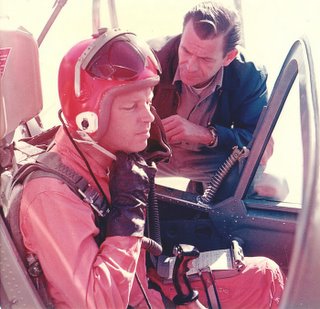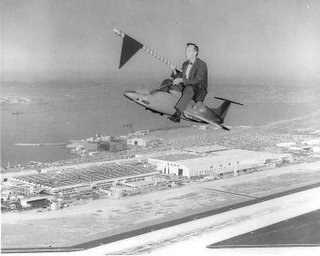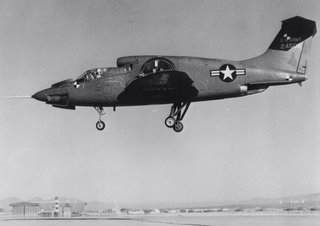


Willis Louis “Lou” Everett was born on November 28, 1924, in Brooklyn, New York. Lou graduated from high school at seventeen during World War II, and wanted to fly fighter aircraft for the United States Navy. Because he was too young for the Navy Cadet program, he enlisted in the Army. Within a few months he transferred to the Army Air Corps and began training as a fighter pilot assigned to fly P-51 Mustangs. Stationed in Florida, he was awaiting assignment to go overseas when the war ended.
Lou joined the Mississippi Air National Guard, attended Millsaps College, and continued to fly by crop dusting and instructing at a local air school. While attending Millsaps he married Betty June Coleman and soon after the couple moved to Starkville, Tennessee where Lou enrolled in the Aero Physics Department at Mississippi State University.
In 1950, Lou and June had their first baby, Tom. In December of that year the Mississippi Air National Guard was called to active duty because of the Korean Conflict. The family followed the unit to Albany, Georgia and then to Louisville, Kentucky, where in 1952 their second child, Kathy, was born. Shortly thereafter Lou was called to serve in Korea, where he flew AT-6 Texans on forward air control missions.
Lou returned to the states to resume his education at Mississippi State and graduated in 1954 with a degree in Aeronautical Engineering, and joined Chance-Vought in California as an engineer. However, Lou still yearned to fly.
In 1955 June gave birth to their third child, David. Lou was hired by Ryan Aeronautical Company as their second test pilot for the X-13 Vertijet, joining Ryan’s Chief Test Pilot, Pete Girard. The X-13 was the world’s first pure jet VTOL aircraft, and Pete and Lou were the only pilots to fly it. As a result of their research work on the X-13, both Pete and Lou received awards from the New York Academy of Sciences. During this time Lou became one of the original 17 members of the Society of Experimental Test Pilots. In 1957 June gave birth to their fourth child, Glen
During the test phase of Ryan’s VZ-3RY Vertiplane, Pete Girard resigned from test piloting, and Lou became Ryan’s Chief Engineering Experimental Test Pilot. Lou continued testing the Vertiplane and began testing the Flexwing, which was a Rogallo-wing aircraft and a powered fore-runner of modern hang-gliders.
The next project was the XV-5A Vertifan, jointly developed by Ryan and General Electric. The Vertifan employed the lift fan concept to achieve vertical flight, diverting jet thrust to spin louvered fans in the wings and nose.
On April 27, 1965, the two Vertifan prototypes made their public debut during a press demonstration at Edwards. One was to fly horizontally in front of the grandstand, while the other would convert from horizontal to vertical flight and descend. Lou was in the plane scheduled to descend. Flying at 180 knots and an altitude of 800 feet, Lou prepared to transition from conventional to fan mode, but unexpectedly the Vertifan violently pitched nose down. Lou ejected, but the ejection seat failed and his parachute caught on the plane’s high tail. Lou went down with the plane and was killed.
Lou was a devoted family man, an outstanding engineer, and a passionately dedicated test pilot during a seminal time in the history of United States aerospace.
Photographs and Biography kindly provided by David Everett, Lou's son. David has his own website which can be viewed from this link http://home.san.rr.com/everett/